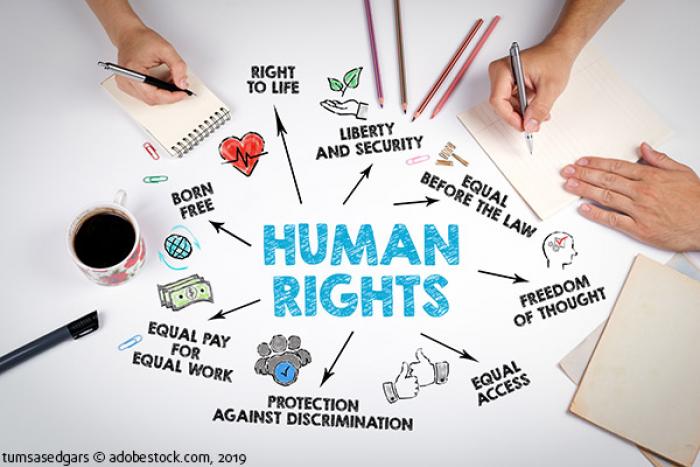Germany: Investment Plan for Europe – EIB to provide BioNTech with up to €100 million in debt financing for COVID-19 vaccine development and manufacturing

- EIB debt instrument will support BioNTech’s global development of BNT162 for prevention of COVID-19 infection as well as scale-up of manufacturing capacity in Europe as part of the company’s global development and supply strategy
- The project benefits from Horizon 2020 InnovFin and the European Fund for Strategic Investments, joint instruments of the European Commission and the EIB
The European Investment Bank (EIB) and BioNTech SE (Nasdaq: BNTX, BioNTech) today concluded a €100 million debt financing agreement to support the development of BNT162, the company’s COVID-19 vaccine programme. The deal will also allow the company to expand its manufacturing capacity in order to supply the vaccine fast worldwide in response to the pandemic. This will be done at the company’s own risk while the clinical studies are ongoing. BioNTech became the first European company to enter clinical testing, having started a clinical trial in Germany in April and a further clinical trial in the United States at the beginning of May. BioNTech’s development programme for BNT162 is one of the broadest development programmes globally, with four vaccine candidates being tested in parallel.
mRNA vaccines consist of genetic material, called messenger RNA, that provides instructions for a human cell to make a target protein, or immunogen, which activates the body’s immune response against the respective virus. The goal of a vaccine is to stimulate the immune system to generate protective, long-lasting antibody and T cell responses against SARS-CoV-2 and prevent subsequent infection upon exposure to the virus. mRNA vaccines are a potent new developmental class of vaccines with potential for high versatility and favourable safety properties. BioNTech was able to bring the first vaccine candidates from concept into clinical testing in less than three months. Safety, speed and flexibility are of the utmost importance in reacting to the current pandemic.
The EIB debt investment will be disbursed in two tranches of €50 million each, following completion of pre-defined milestones. It is backed by the European Fund for Strategic Investments, the financial heart of the Investment Plan for Europe, in which the EIB and the European Commission partner to kick-off investment for EU priority projects. It also benefits from InnovFin Corporate Research Equity for Corporate Research backed by Horizon 2020, the EU Framework Programme for Research and Innovation.
“The only way to end the dramatic situation the world has been facing since the outbreak of the coronavirus pandemic is to come up with a safe and effective vaccine,” said Ambroise Fayolle, EIB Vice-President in charge of innovation. “In recent years the EIB has become a unique player in supporting highly innovative venture-stage biotech and medtech companies in their research and development of vaccines, therapeutics and diagnostics solutions, and we are doing everything we can to step up our support in the current crisis.”
Mariya Gabriel, Commissioner for Innovation, Research, Culture, Education and Youth, said: “As part of our efforts to counter the spread of the coronavirus, we have embarked decisively on the worldwide race to find an effective and safe vaccine as quickly as possible. For this purpose we recently launched the Coronavirus Global Response initiative, while at the same time we mobilised significant funding through Horizon 2020 for research projects aimed at developing a prophylactic and a therapeutic vaccine. I am very pleased that today, together with the European Investment Bank, we are extending our support to BioNTech, which is yet another concrete step towards our goal of getting a vaccine and ensuring access to it for all.”
“The investments we have made to develop our vaccine platform over the past 12 years have been instrumental in enabling us to develop our COVID-19 vaccine programme rapidly in response to the global health crisis,” said Sierk Poetting, Chief Financial Officer & Chief Operating Officer of BioNTech. “This funding commitment by the EIB will further support the next stage of our COVID-19 scale-up activities as we expand our production capacity to enable global supply.”
BioNTech already entered into a €50 million venture debt agreement under the European Growth Finance Facility for its personalised cancer immunotherapy programme in December 2019. The financing was part of broader EIB activities in the life sciences sector. Some 50 European companies in the life sciences industry have received a total of €1.3 billion, backed by the European Fund for Strategic Investments, over the last four years.
Background information
About the Investment Plan for Europe
The Investment Plan for Europe is one of the EU’s key actions to boost investment in Europe, thereby creating jobs and fostering growth. To this end, smarter use is made of new and existing financial resources. The EIB Group is playing a vital role in this investment plan. With guarantees from the European Fund for Strategic Investments, the EIB and the European Investment Fund are able to take on a higher share of project risk, encouraging private investors to participate in the projects. To date, the projects and agreements approved under EFSI are expected to mobilise around €486 billion of investments and to benefit around 1.2 million small and medium-sized companies throughout the EU.
InnovFin – EU Finance for Innovators
Under Horizon 2020, the EU research and innovation programme for 2014-2020, the European Commission and the European Investment Bank Group (EIB and EIF) launched a new generation of financial instruments and advisory services in 2014 to help innovative firms access finance more easily. Until 2020, “InnovFin – EU Finance for Innovators” is offering a range of tailored products which provides financing in support of research and innovation by small, medium-sized and large companies and the promoters of research infrastructure.
About BioNTech
Biopharmaceutical New Technologies (BioNTech) is a next generation immunotherapy company pioneering novel therapies for cancer and other serious diseases. The company exploits a wide array of computational discovery and therapeutic drug platforms for the rapid development of novel biopharmaceuticals. Based on its deep expertise in mRNA vaccine development and in-house manufacturing capabilities, BioNTech and its collaborators are developing multiple mRNA vaccine candidates for a range of infectious diseases alongside its diverse oncology pipeline.



